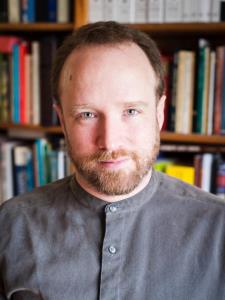
Eric J. answered • 02/22/16
Tutor
5
(17)
Ph.D. teaching Biblical languages, history, philosophy, and JavaScript
The Roman Catholic and "Greek" or "Eastern" Orthodox Churches were united as one church for the first millennium of the common era, but began to grow apart due to diverging cultural, linguistic, and theological expression. From the point of view of the Orthodox, they reject the Roman Catholic claim to the universal and ordinary jurisdiction of the Pope of Rome, i.e. that the Pope is the "bishop of bishops" and has authority over the entire Church. They also reject the dogma of papal infallibility, where the Pope is regarded as infallible when speaking "ex cathedra" in the function of binding the Church to a statement of dogma. Other minor issues such as the Filioque clause in the Creed, original sin, the immaculate conception of the Virgin, purgatory, the use of unleavened bread for the Eucharist, and clerical celibacy are not widely regarded as being insurmountable differences. From the Roman Catholic point of view, they are prepared to accept all Eastern distinctiveness as long as they acknowledge the primacy and authority of the Pope of Rome.
Islam is a native Arabian monotheistic religion that drew heavily from Jewish and Christian influences, notably their scriptures. It is widely believed that the variant of Christianity encountered by Muhammad and his followers was heterodox, perhaps Arian. Islam rejects the trinitarianism of orthodox/catholic Christianity in favor of a strict and simple monotheism, though they regard Jesus as a prophet and even as the promised Messiah. Islam regards the final revelation of God to be the Qur'an given to Muhammad by the Archangel Gabriel as a series of "recitations" delivered over a long period of time.
Islam is a native Arabian monotheistic religion that drew heavily from Jewish and Christian influences, notably their scriptures. It is widely believed that the variant of Christianity encountered by Muhammad and his followers was heterodox, perhaps Arian. Islam rejects the trinitarianism of orthodox/catholic Christianity in favor of a strict and simple monotheism, though they regard Jesus as a prophet and even as the promised Messiah. Islam regards the final revelation of God to be the Qur'an given to Muhammad by the Archangel Gabriel as a series of "recitations" delivered over a long period of time.





